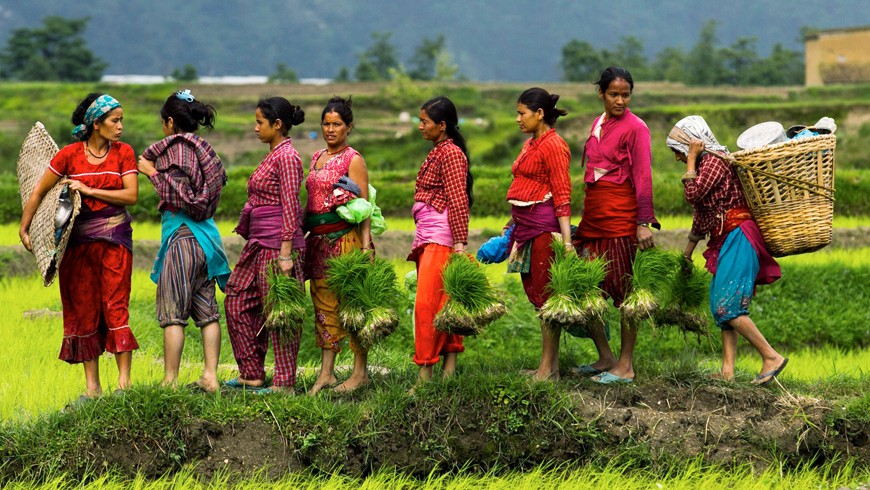- Tuesday, 3 March 2026
Climate extremes affecting Chitwan's tourism, farming
BY A STAFF REPORTER Kathmandu, July 10: A climate service study project conducted by the International Centre for Integrated Mountain Development (ICIMOD) in Chitwan found that extreme weather event in the form of floods had biggest impacts on tourism business.
Home to charismatic one-horned rhino and Royal Bengal tiger, Chitwan attracts tourists for jungle safari, wildlife watch, nature walk and bird study.
ICIMOD's pilot project focussing on climate information to local stakeholders found that floods curtailed wildlife habitats and changed animal behaviour and plant patterns. As a result, more man-animal conflict took place with increased number of wild animals entering human settlements.
Similarly, other extreme forms of weather like drought, hailstorm and frost adversely affected agricultural productivity. In this regard, the victimised farmers were putting a blame on the governments at the federal, provincial and local levels for their lack of working coordination to deal with the situation.
ICIMOD conducted a two-year pilot project on ways to enhance climate services, starting in January of 2020. This was conducted in the Chitwan district, in central Nepal. The assessment focused on climate services affecting the tourism and agriculture sectors, how it builds livelihood resilience, and reduces risks.
The full report of the scoping was recently made public.
The goal was to “improve livelihood and enhance resilience” of locals involved in both tourism and agriculture, by reducing risks and improving climate information services. The expected outcomes included improving the capacity of climate information services, creating a user-driven service system to promote sustainable practices, provide timely information about weather and climate change, and distribute risk communication and weather/season advisories in real time.
ICIMOD staff visited Chitwan to gain a better understanding of the stakeholders who would benefit from the climate services, and to seek out people who would participate in such activities.
Similarly, droughts, hailstorms and frost disproportionately affect agricultural productivity. Farmers place blame on the lack of coordination between the local, provincial and federal levels of government, as well as the unavailability of research and tools.
ICIMOD’s research suggests that providing farmers in Chitwan with reliable and timely information adds value to the agricultural sector, especially when the information is location specific. Additionally, the technical jargon adds a barrier, as farmers were unable to comprehend the information effectively.
Overall, the scoping report proves that improving information mechanisms ensures that stakeholders within the tourism and agriculture sectors can make better decisions to advantage them, while combating the adverse effects brought on by climate change. In the future, ICIMOD will co-develop climate services within the Chitwan district.








-square-thumb.jpg)







